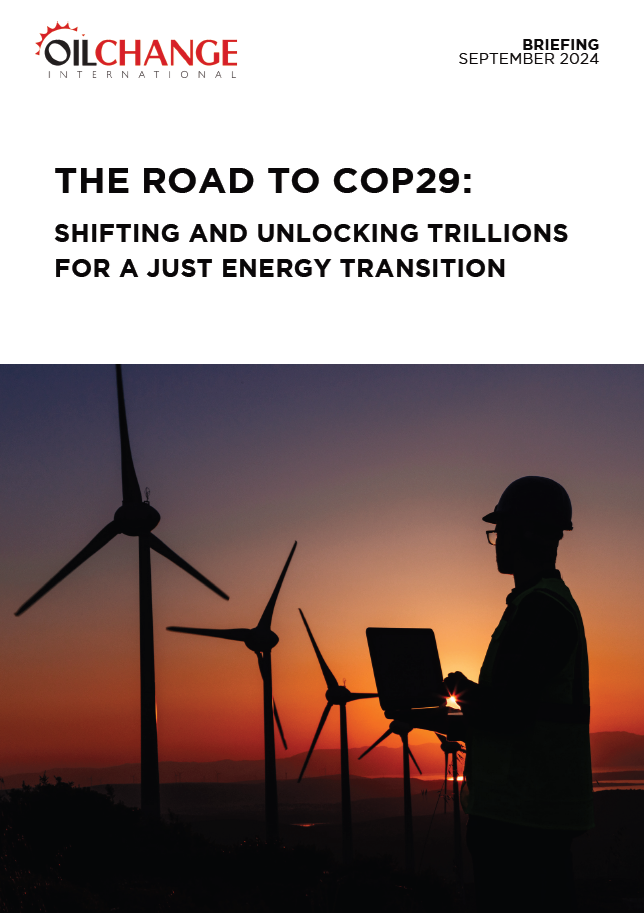
Road to COP29: Shifting and unlocking trillions for a just energy transition
Last year at COP28, governments committed to transition away from fossil fuels. The next key step to make good on this landmark energy agreement is rich countries agreeing to a new climate finance goal of at least $1 trillion annually to make this possible. This will allow countries to deliver national climate plans (NDCs) due in 2025 that phase out fossil fuels.
Road to COP29: Shifting and unlocking trillions for a just energy transition
Rich countries can mobilize well over $5 trillion a year for climate action at home and abroad by ending fossil fuel handouts, making big polluters pay, and changing unfair global financial rules. This briefing, endorsed by 36 civil society organizations, is published as global leaders meet at Climate Week NYC and the United Nations General Assembly ahead of COP29, where leaders must agree on a new global climate finance target (NCQG). This target must be at least $1 trillion annually in grants and grant-equivalent finance and is essential for countries to deliver last year’s commitment to transition away from fossil fuels. Only strong finance targets will unlock strong national climate plans (NDCs) due in 2025 that phase out fossil fuels.
Read the Briefing Read the We Can Pay for it Factsheet Read the press release
Key findings:
- The success of COP29 depends on the adoption of an ambitious new climate finance target (NCQG) of at least $1 trillion annually in grants and grant-equivalent finance.
- Rich countries have the means to mobilize well over $5 trillion a year for climate action at home and for the NCQG, including by ending fossil fuel handouts, making big polluters pay, and changing unfair global financial rules.
- Grant-based and highly concessional financing, not more harmful loans, is an urgent need to fulfill the landmark COP28 decision to phase-out fossil fuels, especially for adaptation, loss and damage, and key mitigation projects in the Global South.
- Countries must not get distracted by voluntary energy finance proposals or oil money funds that do little more than greenwash. Instead they should focus on delivering a strong and accountable NCQG and making polluters pay through well-designed and legislated fossil fuel levies.
- Last year at COP28, governments committed to transition away from fossil fuels. The next key step to make good on this landmark energy agreement is rich countries agreeing to a new climate finance goal (NCQG) to make this possible. This will allow countries to deliver national climate plans (NDCs) due in 2025 that phase out fossil fuels.
